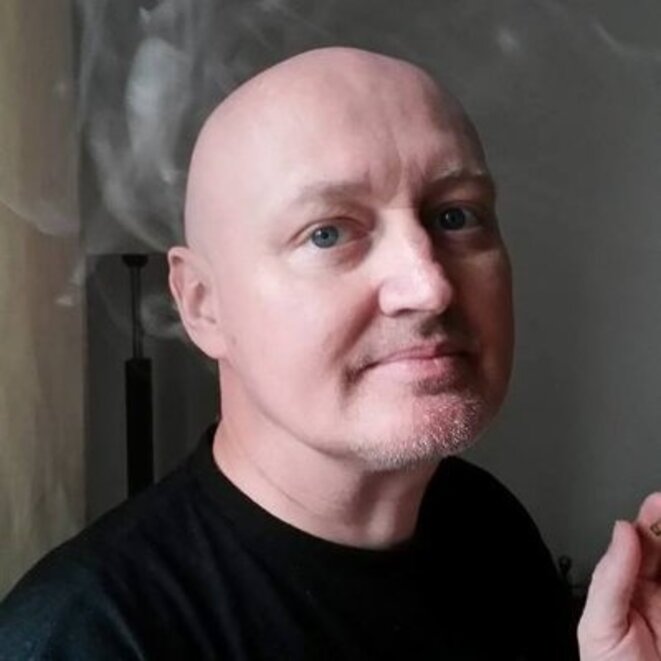Un article concernant la fourniture par l'entreprise Qosmos des moyens de surveillance et interception des communications numériques à la Syrie de El Assad (dans le cadre du program Asfador), et à la Libye de Kadhafi (via l'entreprise Amesys, dans le cadre du programme Eagle), a été publié par le Sunday Times dimanche.
Le journliste du Sunday Times m'a envoyé l'article et a tenu à s'excuser : l'article original a été "drastiquement coupé, et le titre changé".
Je n'ai pas du tout envie de copier l'article ici, tellement c'est mauvais, mais puisque il existe, je le fais.
Pourquoi ne pas respecter la précision, l'éloquence, la complexité et l'intelligence de l'entretien accordé, afin de faire ressortir les vrais enjeux et les différents volets de l'affaire, à la fois législatif, judiciaire, et (au sens large) politique ? le rapport avec les droits de l'homme, le besoin d'un contrôle démocratique des outils de surveillance et d'interception des communications numériques ? de la responsabilité, et de l'éthique des entreprises ? Du besoin de revenir sur l'élargissement des dispositions Secret Défense introduites par le gouvernement Sarkozy/Fillon en 2009 ?
Je'évoque soigneusement et patiemment tous ces aspects et enjeux pendant des heures devant des journalistes, et puis tout cela disparait dans les articles, pour être remplacé par des phrases du genre "ça me rend malade"... "je n'arrivais pas à dormir".
Après une semaine, je ne sais pas si j'ai envie de m'adresser encore une fois dans la vie à un journaliste.
When everything we say is "dumbed down", it's despairing...
Mais au moins, il y a un article "out there" en anglais...
Comment entretenir de l'espoir en l'humanité, quand des telles affaires sont traités ainsi par les medias ?
James

News
My work was used to help kill; Irish translator defied his bosses to suggest his firm might be selling spy kits to dictators, writes Matthew Campbell
Matthew Campbell
23 June 2013
The Sunday Times
© 2013 Times Newspapers Ltd. All rights reserved
AN IRISH translator is being hailed in France as the latest heroic whistleblower against "digital oppression", after being sacked for allegedly revealing details of his company's sale to Libya and Syria of surveillance equipment used to track dissidents.
James Dunne, 49, from Dublin, was sacked by the Paris-based Qosmos SA at the end of last year.
By then he had gone on sick leave, appalled that he may have unwittingly helped dictators to spy on, imprison, torture and kill their opponents.
"I couldn't sleep at night," said Dunne.
In an interview with The Sunday Times, Dunne revealed that his company's development of software for "deep-packet inspection", a system for peering into internet messages like the one exposed by Edward Snowden, a CIA analyst who recently blew the whistle on Prism, an American masssurveillance programme. "I thought it was being developed for the French government, for legal interception," said Dunne, who translated the company's technical notices into English. "I had no reason to imagine it was being sold to dictators. I would not have agreed to work for it."
Thibaut Bechetoille, the chief executive at Qosmos, did not return messages from The Sunday Times last week. He told Le Parisien newspaper that Dunne, his former employee, "wants the company's skin".
Benoit Chabert, the company's lawyer, denied that the Syrian operation, codenamed Asfador, for which various European companies provided components, had ever gone into operation.
"It was stopped in October 2011 for ethical reasons," he said.
According to Dunne, however, company bosses announced in March last year that Qosmos would carry on delivering updates to Syria for another two years for "contractual reasons".
Chabert denied this. Dunne began work at Qosmos in 2005. Within six years he says his salary had doubled. "I was having a great time," he said. "I loved my job. Then the Arab spring started."
He posted on his Facebook page the question: "Is DPI [deep-packet inspection] a weapon?" This was accompanied by a link to an interview in which his company's boss was asked: "Do you sell to dictators?" Dunne received a complaint from the company's head of marketing. Soon afterwards he claimed a boss asked him: "Are you with us or against us?" Dunne says he was put under "ridiculous" pressure at work and fell ill.
"My work was being used to help kill people and stamp out free expression," he said.
Dunne has lodged an "unlawful dismissal" case with an industrial tribunal, which will hear it in October. He has been questioned as a witness in a French investigation focused on Qosmos. "Exports of this technology need to be more closely regulated," he said. "In the wrong hands it's a weapon."
News International Associated Services Limited



